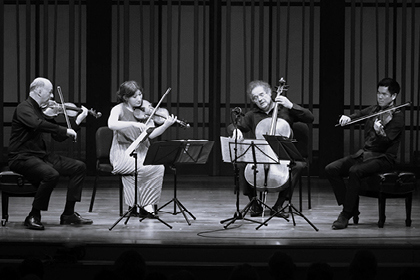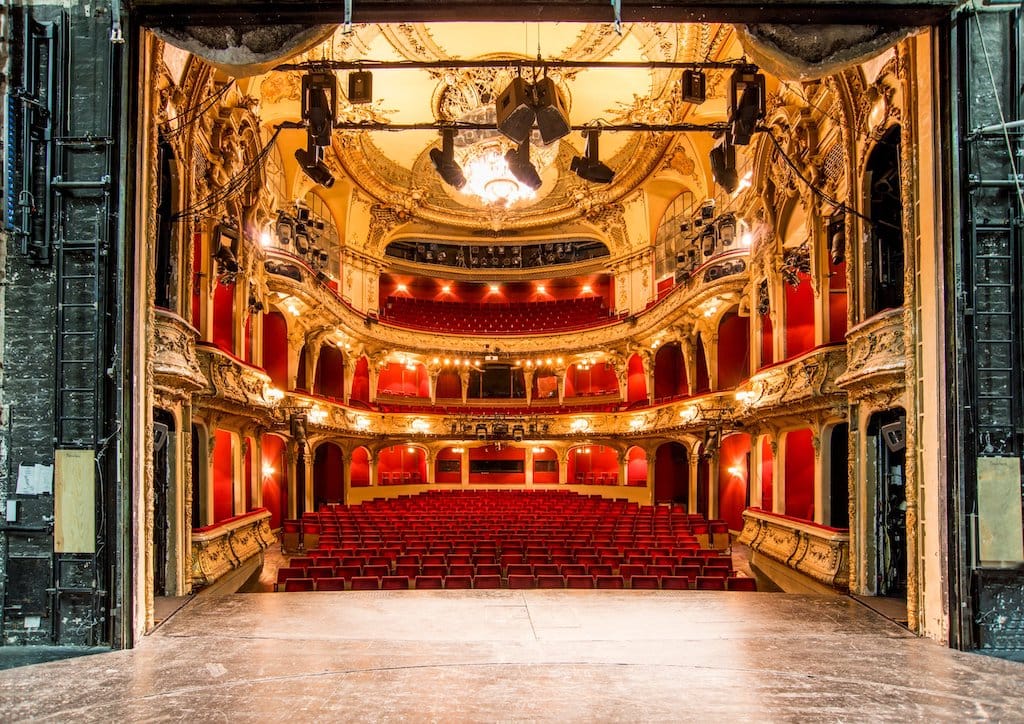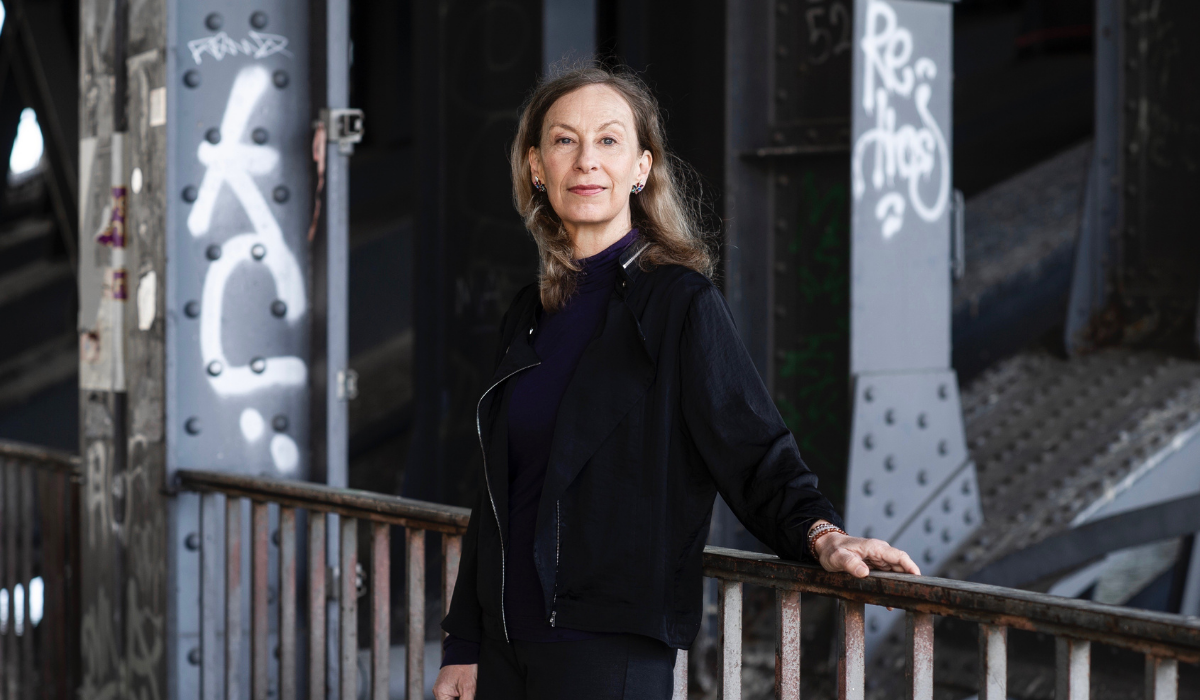For Cathy, living next door to Bertolt Brecht is just part of a broader connection, including links to composers who worked with Brecht during his lifetime. Her musical lineage includes years working with Heiner Goebbels on the music of Hanns Eisler, and she knows musicians who had performed under Paul Dessau at the Berliner Ensemble. 'That all fed in,’ she says. ‘But at some point I had to make my own way through, especially as a non-German.'
Her own way includes the deft use of silence and space. The string-players might graze the bridge for a breath-like hiss, then dissolve into stillness.
'There’s urgency, intensity, but also space and breath,' Angie says. 'Cath’s music moves deftly between emotional immediacy and objectivity. There’s great range within it. And what I love is that it lets the audience inhabit that space too.'
Cathy agrees. 'I was very conscious of not being ornate. I wanted clarity of purpose. Each poem has its own world. I tried to reflect that, and also the fluctuation—the fragility of the moment.'
They sisters have collaborated before—on Hamlet Link, and later Songs of Love and War—but this feels different.
'In those earlier works, the musicians had to follow me,' Angie says. 'This time, I’m one of them.'
Their rehearsal window is short: two days in Berlin, one on site. But there’s trust. 'The printed page is just so strong,' Cathy says. 'It’s daunting, actually. I just want to let Brecht speak.'
Part of the work’s tension emerges from its scale: modest, precise, intimate. The listener is invited to imagine writing to a loved one they may never see again, or trying to plan a future when nothing in the present is stable.
'It’s not about reducing the text to what I feel,' Angie says. 'There’s a much larger canvas I want to expand into. It’s a universal experience. And it’s happening again.'
Alles wandelt sich. Everything changes. It’s a closing line—but not a full stop.
Takács Quartet appears with Angie Milliken, performing Sonnet of an Emigrant by Cathy Milliken. Touring to Melbourne, Canberra, Sydney, Brisbane, Adelaide and Perth from 14 - 25 August.
Tickets start from $65, or $49 for under 40s and $20 student rush (available 48 hours prior).





